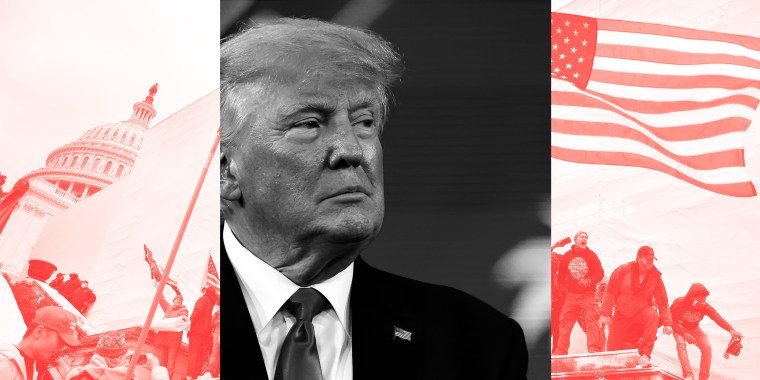In a media world where words and phrases including “This is big” or “This is a bombshell” are used far too often, we got some legitimately consequential news this week concerning former President Donald Trump and his legal troubles. The House committee investigating the insurrection at the U.S. Capitol last Jan. 6 has alleged that the evidence is “more than sufficient to establish a good faith belief” that Trump and others may have committed crimes or fraud to overturn the 2020 presidential election results.
The legal hot water Trump finds himself in is nearing a boil.
This means that the legal hot water Trump finds himself in is nearing a boil. Remember, though, that there isn’t a direct line from there to seeing Trump in a jumpsuit. There are a lot of steps in between.
With a court filing this week, the Jan. 6 committee alleges that not only Trump but also his former attorney, John Eastman, may have engaged in criminal or fraudulent behavior related to the 2020 election. Eastman, according to that court filing, was advising Trump on ways to undermine the valid presidential election results. Not only is that a bad look, but it may also be illegal.
The Jan. 6 committee has been trying to obtain information from Eastman about his purportedly illegal legal advice. Eastman has refused, claiming that because he was acting as Trump’s attorney, the information the committee wants is protected by the attorney-client privilege and the attorney work product privilege. These are, broadly speaking, evidentiary privileges which provide that many communications between an attorney and a client and documents prepared by that attorney can remain private. That is, unless an exception to those privileges applies. And this is where things get interesting.
The committee’s filing argues that there is no legitimate attorney-client relationship here and that documents prepared by Eastman do not fall within the attorney work product privilege. But then — and here comes “This is a bombshell” moment — the committee argues that even if those privileges existed in the first place, they can’t be used to shield Eastman’s documents because “[c]ommunications in which a ‘client consults an attorney for advice that will serve him in the commission of a fraud or crime’” are not shielded from disclosure.
A key reminder here, Eastman is claiming that his documents are protected from disclosure by the attorney-client privilege based on the idea that his client is the former president of the United States. But in what we may call the key line in the filing, the committee argues that “evidence and information available to the Committee establishes a good-faith belief that Mr. Trump and others may have engaged in criminal and/or fraudulent acts, and that Plaintiff’s [Eastman’s] legal assistance was used in furtherance of those activities.”
What are those criminal activities? The House committee lays them out for us. First, Trump may have attempted to obstruct an official proceeding, in this case the counting of electoral votes. Second, Trump may have engaged in a conspiracy to defraud the federal government by “interfering with the election certification process, disseminating false information about election fraud, and pressuring state officials to alter state election results and federal officials to assist in that effort.” And finally, the Jan 6. committee has found evidence that Trump may have “engaged in common law fraud in connection with their efforts to overturn the 2020 election results.”
While we do not know if criminal charges will be brought against Trump, we do know that we can believe our own eyes and ears.
So what happens next? First, the judge will rule on the Jan. 6 committee’s argument that it can obtain the requested documents from Eastman. Then the committee and possibly the full House of Representatives will decide whether to vote to refer criminal charges against Trump to the Department of Justice. If they vote in the affirmative, the question then goes to the Justice Department to conduct its own independent assessment. That is as it should be. The Justice Department is an independent agency and should make decisions about whether or not to prosecute based on the facts and the law, not political pressure.
While we do not know if criminal charges will be brought against Trump, we do know that we can believe our own eyes and ears. The Jan. 6 committee has obtained evidence to support what we all knew and saw. One duly elected president, Trump, apparently attempted to undermine the next duly elected president, Biden. We aren’t imagining it. Trump apparently took steps to halt the peaceful transfer of power and rob us of a fair presidential election. The evidence points to the conclusion that he used lawyers and others to carry out his plan, which may be fairly described as a criminal scheme to undermine the very core of our democracy. Plenty of other stories are introduced with the phrase “This is big.” But, no matter how you spin it, this one really is.

